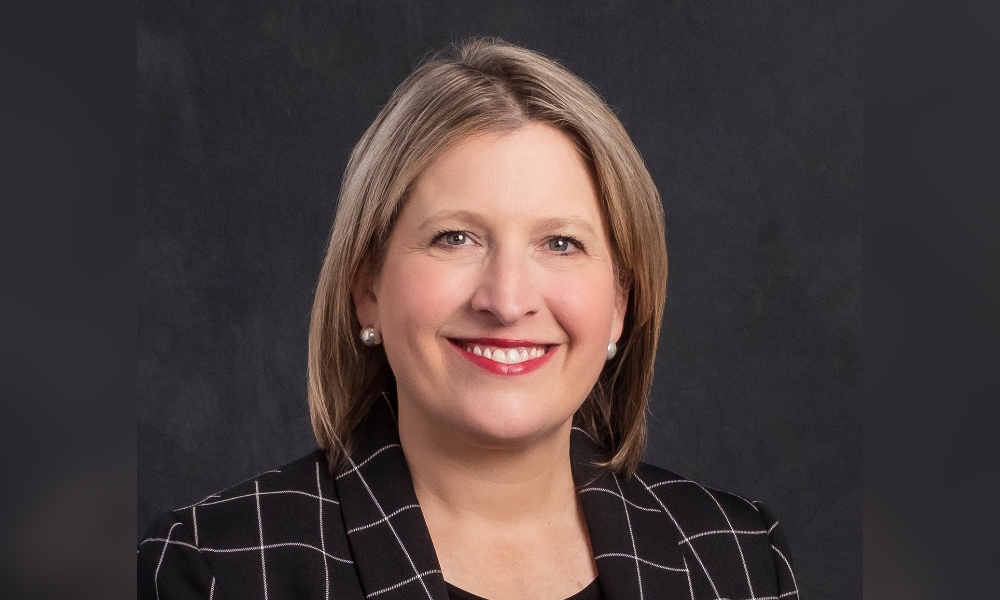Employees are 'watching closely the work of their employers'

Many organizations talk about diversity and inclusion but not all are following through with concrete action plans.
And this is having a negative effect on employee attitudes at a time when attraction and retention efforts are being highly promoted by HR and employers, according to a new survey.
Catalyst found that roughly half of 24,348 employees in more than 20 countries believed that people were truly held accountable for an organization’s DEI efforts and 37 per cent felt that processes around this were fair.
“Leaders have been talking about George Floyd as an example for the past three years, and speeches and discussions with teams, but what are they actually doing to drive change in that area?” says Julie Cafley, executive director of Catalyst Canada in Toronto.
“Organizations have a lot of room for improvement when it comes to the organizational accountability to DEI and fairness in terms of the processes.”
These disappointing numbers shouldn’t come as a surprise to senior leaders, she says.
“This research really stems from a piece that that came out back in November, and it was talking about the fact that 75 per cent of employees found their organization’s racial equity policies to be not genuine.”
The new study was conducted by Emily Shaffer, senior director, research at Catalyst, and Brittany Torrez, a doctoral candidate in organizational behaviour at the Yale School of Management, along with 4,600 Canadians.
Intersectionality numbers
While these figures show how much work has to be done to earn the trust of employees, it’s even worse for marginalized employees.
“The impact is lower for women, is lower for LGBTQ employees, is lower for employees with disabilities, so as with a lot of Catalyst’s research, we’re really looking at all of those layers of intersectionality and how it affects their experience at work. It’s fascinating research, and it says a lot about how our employees are watching closely the work of their employers, frankly,” says Cafley.
Previous Catalyst research showed that racism and sexism at the workplace is “rampant.”
While most senior leaders talk about DEI being important, the evidence is scant that change is happening, according to Cafley.
“I was with a CEO who’s on the Canadian advisory board recently, and every day she looks in at the [organization’s] makeup, she said, ‘Now we have seven per cent of black employees, but we just had an increase and it does need to be taken more seriously,’ and that’s what the study reflects is that employees are saying we need to see more, and we need to see concrete action and not just good intentions.”
More than acknowledgement needed
Many of the societal DEI efforts have come out of celebrations, such as International Women’s Day, but more action is needed from organizations other than simply acknowledging these groups, says Cafley.
“That’s great as a baby step forward but what are you actually doing for women in your workplaces? How are you actually fixing systems and processes, and not telling the women that they need to change or be fixed? How are we actually ensuring that we have equity and representation of Black people and leaders in the workforce, and not simply celebrating Black History Month?”
“How are we moving beyond the good intentions of the celebrations, and actually committing to action?”
When employees do feel that the employer is accountable, worker engagement, feelings of inclusion and the likelihood to stay is doubled, according to the research. When the DEI process is perceived to be fair, those numbers are increased five-fold.
“Employees want to work for organizations that align with their values. Accountability is present when leaders are held responsible for increasing diversity in their organization, when you’re actually making progress towards fostering inclusion, and where that’s actually rewarded potentially as a performance metric, or a key aspect of what organizations value,” says Cafley.
“We’re seeing lots of organizations that have increased the numbers in terms of representation but what’s happening is if you don’t have an inclusive workplace, you’ve got the numbers but you still have the traditional white older men that are actually still making the decisions and still holding the power in some of these places, whether it be at the board table at a leadership table,” she says.
Make liberal use of ERGs to advance the DEI process, says a senior HR leader.
Action for HR
For HR leaders who often take the lead on DEI efforts, the message is clear, says Cafley.
“Being proactive in creating processes and policies that respond to employees feedback, and including their voices and decision-making and being true to their word in terms of that follow-up, so use those evidence-based strategies to learn how to hold your organization accountable, so that everyone across the organization knows that it matters, knows the change that is needed and know how to constantly improve.”
“DEI is a journey that that’s never complete. It’s constantly changing and evolving and there’s so many different layers and aspects of DEI and essentially, the end game is that all team members can bring their whole selves to work,” says Cafley.
Being transparent and especially honest about DEI progress is also key to boosting engagement with the workforce.
“Don’t try to sugar-coat those numbers; share those numbers and share the plan so that the whole organization can be a part of building that together so that they can work collaboratively towards that goal because the more that the whole team understands the challenges, the more that they will be empowered and engaged to be a part of the solution and bettering the situation for the organization.”




